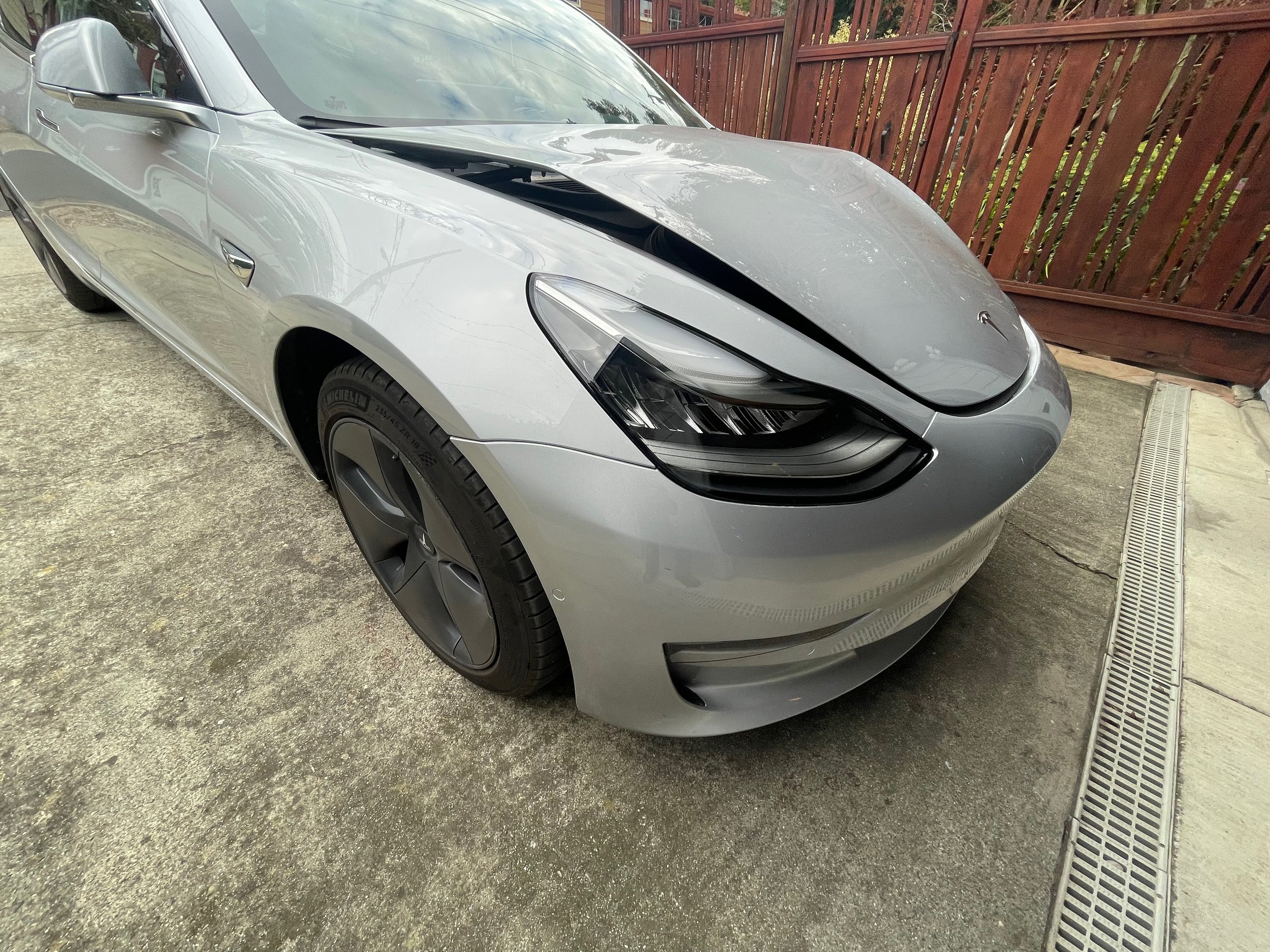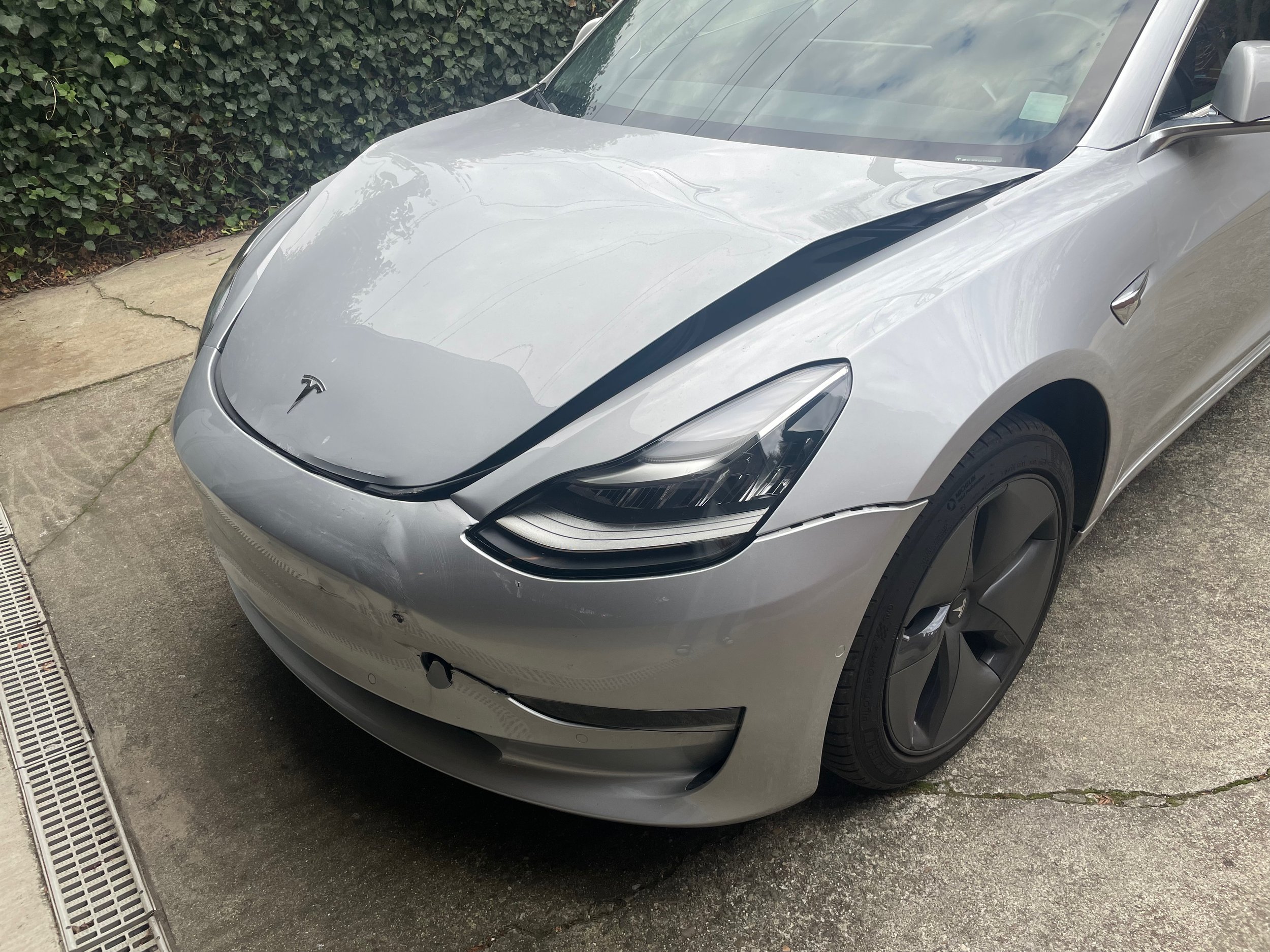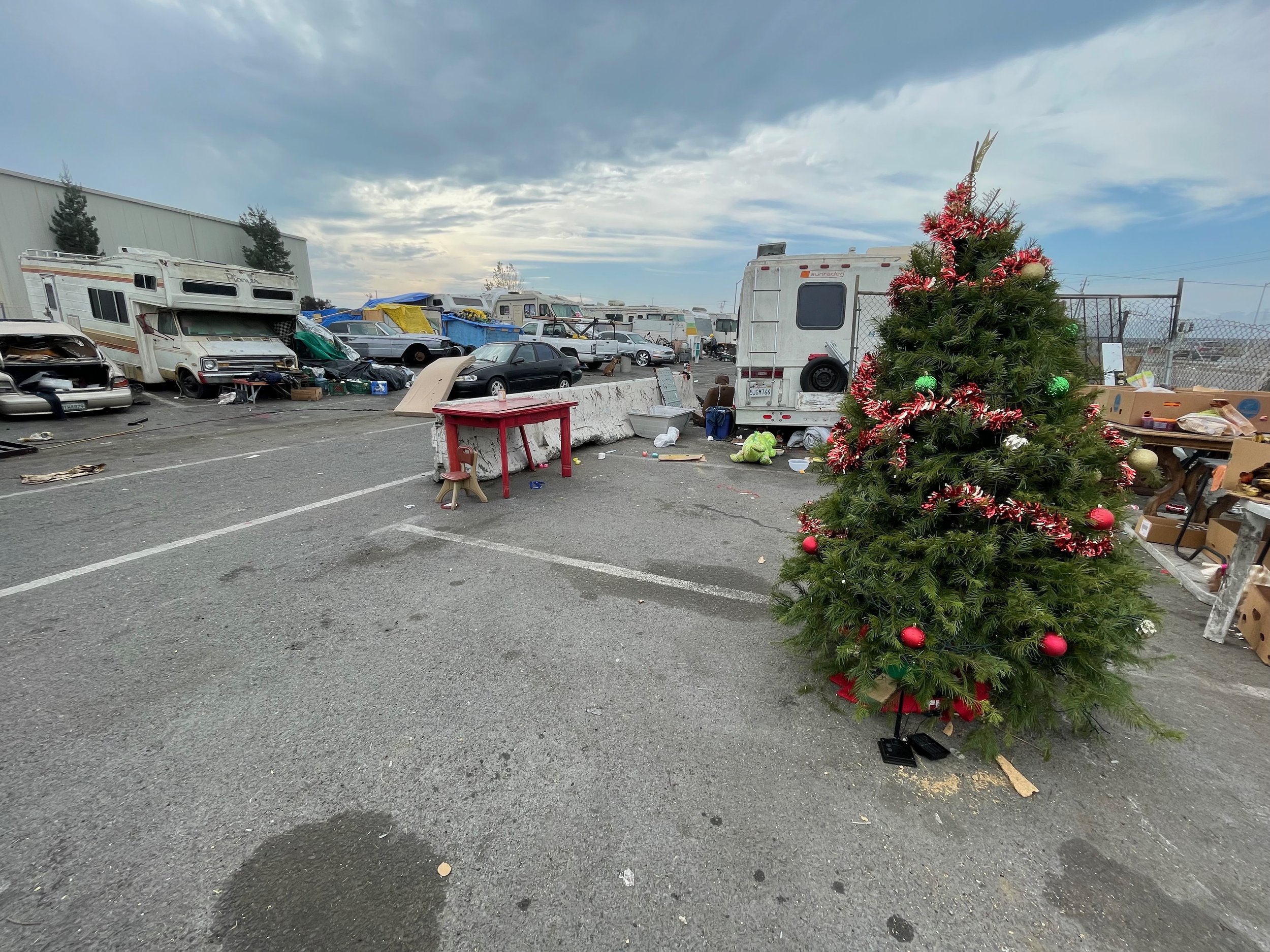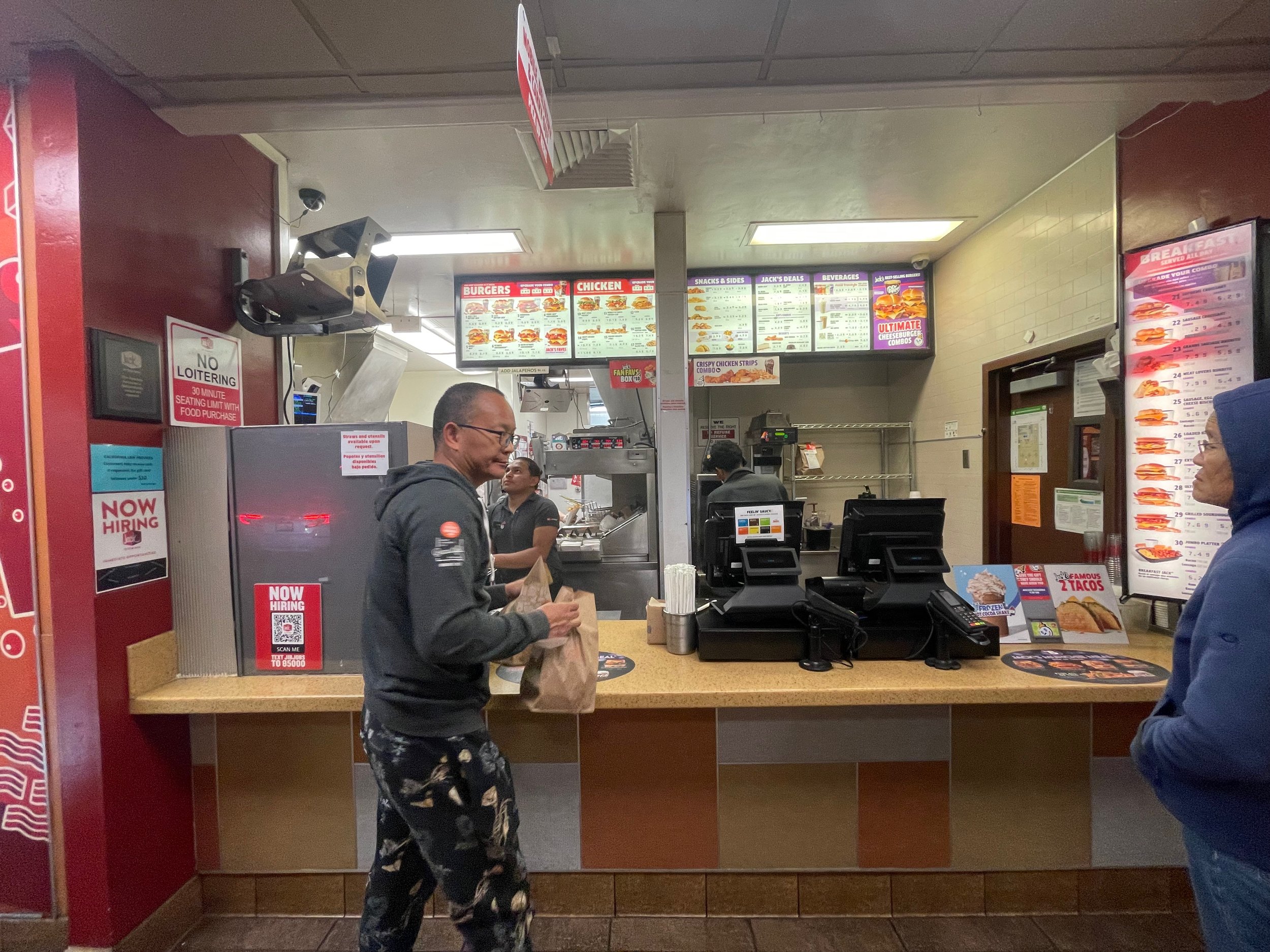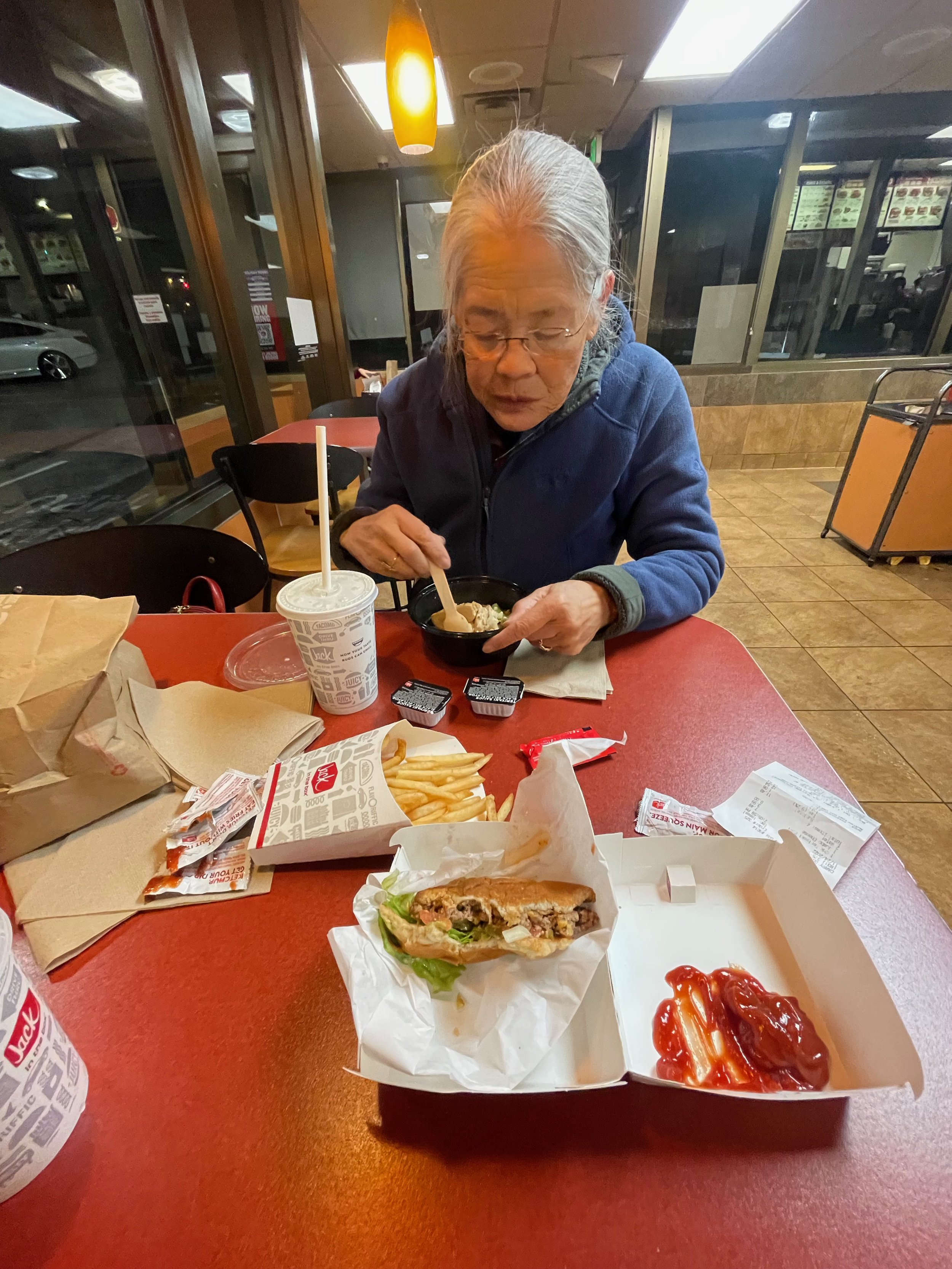After Covid I was down to 153 lbs., a pleasant side effect from the misery and fatigue of being sick. Recovery and the holidays undid the good that Covid did. OK, 156.0 on the scale this morning. 150 is a goal, not a promise, not a resolution, just a carrot hanging in front of this donkey.
What else? My ankle is fully recovered. I broke it on the Ides of April, trying to run to the Tilden Park restroom at the bottom of the hill. Six weeks in a boot, even sleeping with it, then a visit with the doctor who said, ‘I hope I don’t see you again.” I’m good with that. I’ve measured the time my walks require, and I’m a little slower. Age? I am 76. I’m not expecting to get faster, stronger in any athletic pursuits. When I was riding my bike, a peloton passed me on Old Tunnel Road. After I came home I complained to J. She said, “How many people did you pass who were watching TV, reading the paper, or just drinking coffee?” I remember that.
My hearing. I lost a hearing aid in Chinatown a week ago. A new hearing test revealed that my hearing is fairly close to what it was three years ago, but I learned for the first time that my word recognition, which should be 100%, is close to 65%, meaning that I have trouble distinguishing words, especially from the mouths of my grandchildren. I never knew that hearing was split between volume and clarity.
What else? Minor things, like toenail fungus, a much-improved psoriasis, a slowly recovering finger I injured at Mammoth Lakes last August, needed to play chords easily.
My blood pressure, with the support of Lisonopril, is in a decent range. Last reading was 126/70. I’ll be resuming visits to 24 hour Fitness, getting back in the pool and the treadmill. That was a plus in 2022.
Oh yes, the brain, the mind, stuff in that part of me that looks out of my face. For six years I allowed my mind to be assaulted by the presence of Donald J Trump, “the former guy,” a person whose specter cast a shadow in my mind, in my brain, a person whose unwelcome presence was difficult to expunge. He’s not the first. When Jason and Rachel were going through their marital difficulties, and even before then, I let my negative feelings about her take up space in my brain that could have been used more fruitfully. It’s a fault of mine. I’ve let unworthy people occupy too much of my attention. Bob Frassetto, my ex-neighbor, was one of them. He moved away. But before he did I was able to expunge him, Rachel’s gone. Bob is, too. And so is Trump. He’s weak and powerless, a meaningless imposter, someone whose presence over the last six years has spread a pall across the minds of not only me, but many in the country over the last six years. His permanent absence will be met more with a whimper, not a bang.
Closer to home. We have good, meaningful relationships with our kids and grandkids, although we see Isla and Susanto a lot, the other four, occasionally. Since “winter is icumen in,” frequent rain, outside activities with family are less frequent. My brother’s eightieth birthday, a welcome visit from Sean and Greg, being with family is its own reward.
Yesterday we had almost five inches of rain, the biggest storm of the season. We have been concerned about the drought, saving water for the plants, taking shorter showers, being mindful about the environment. The drought bugaboo has been a persistent nag; we might stave off disaster for another year, if the rain continues.
Am I happy? Mostly. Today I was in the yard picking up lawn detritus, thinking about how much fun our kids have been having with their families—a twelve mile hike with the Geens, days of snowboarding at Tahoe for the Weller Way four, and I thought about how much I once enjoyed both of those activities, and at the same time happy not to be doing them today. Or probably tomorrow. I’m living my life as best I can. I find meaning in reading, walking, photography, playing guitar, dinners out, spending time with friends, and volunteering at Dorothy Day Center, preparing breakfasts, driving the trailer to homeless encampments, and simply doing what I’ve been doing for the last fifty-three years—spending time with and appreciating the woman who, in early January of 1970, said “yes.”
Oh yeah, when I’m out I’m always looking. With my phone a photograph is right around the corner. That makes me happy, too.

























